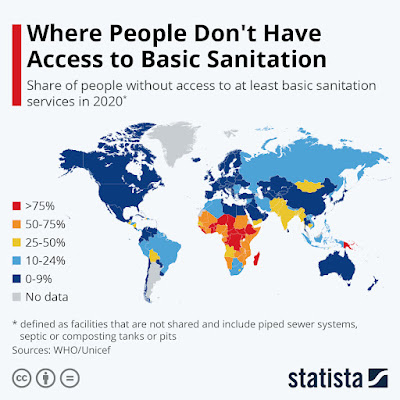What Countries Have The Worst Odors?
It's important to note that perceptions of odors can be subjective and vary from person to person. What one individual may find unpleasant, another person might not notice or may even find appealing. Additionally, factors such as personal sensitivities, cultural differences, and regional variations can influence these perceptions. However, there are certain countries or regions that are occasionally mentioned in discussions about strong or distinct odors. Please keep in mind that these perceptions may not be universally shared, and they don't reflect the overall experience or attractions of these places. With that said, some countries or regions that are occasionally mentioned in discussions regarding strong odors include:
- India: Certain parts of India, particularly densely populated urban areas, may have strong odors due to various factors such as pollution, open sewers, and the use of certain spices in local cuisine.
- China: Some cities in China, especially heavily industrialized areas, can have air pollution issues that may contribute to unpleasant odors.
- Southeast Asia: Certain countries in Southeast Asia, such as Thailand, Vietnam, and Indonesia, have bustling street markets and open food stalls that can have strong food-related odors, including pungent spices and fish sauce.
- Egypt: The streets of Cairo, for example, can have a unique mix of aromas due to the bustling markets, street food, and the presence of animals like horses and camels.
- Some parts of Africa: In areas where sanitation infrastructure may be limited, such as some parts of Sub-Saharan Africa, there can be challenges with waste management, which may result in localized odors.
It's important to approach travel with an open mind, understanding that different cultures and environments have their own distinct characteristics. While some places may have unique smells, they often come with their own charm, beauty, and cultural experiences that make them worth exploring.
What Countries Have The Worst Sanitation?
Sanitation standards can vary widely across countries and regions, and it's important to recognize that "worst sanitation" is a complex and multifaceted issue. It can refer to several aspects such as access to clean water, proper waste management, functioning sanitation systems, and hygiene practices. While it's challenging to provide an exhaustive list, here are a few countries that have faced significant challenges in terms of sanitation:
- Sub-Saharan Africa: Several countries in Sub-Saharan Africa face sanitation challenges, including limited access to clean water and proper sanitation facilities. Factors such as inadequate infrastructure, poverty, and population density can contribute to these issues.
- India: India has made progress in recent years, but sanitation challenges still persist in certain areas. A large population, rapid urbanization, and inadequate sanitation infrastructure in some regions have led to issues related to open defecation, waste management, and access to clean water.
- Haiti: Haiti has struggled with sanitation issues for many years, particularly after the devastating earthquake in 2010. Access to clean water and proper sanitation facilities remains limited, and open defecation is still prevalent in some areas.
- Afghanistan: Afghanistan faces significant challenges in terms of sanitation, particularly in rural areas. Limited access to clean water, proper sanitation facilities, and ongoing conflicts have contributed to the sanitation issues in the country.
- Papua New Guinea: In some regions of Papua New Guinea, access to improved sanitation and clean water is limited. Factors such as rugged terrain, remote communities, and underdeveloped infrastructure have posed challenges to sanitation efforts.
It's important to note that many countries and international organizations are actively working to improve sanitation conditions in these and other regions facing similar challenges. Efforts are being made to enhance infrastructure, promote hygiene education, and implement sustainable sanitation practices to improve public health and quality of life.

